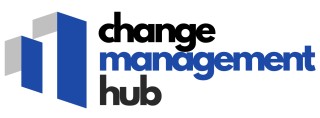
Understanding the role of a project manager
What a project manager does and why it's important
Project managers (PMs) are the unsung heroes of the professional world, the ones who keep everything in sync and on track. They lead projects from conception to completion, making sure that deadlines are met, resources are allocated, and team members are working effectively. According to the Project Management Institute (PMI), over 15.7 million new project management roles will be created globally by 2023. No wonder the role is so crucial.
PMs wear many hats. They need to be adept at risk management, budgeting, and leading cross-functional teams. Remember that one time when your team's marketing campaign was on the brink of collapse because of an unaccounted-for risk? It's the PM who steps in, reassesses resources, and navigates the team back to success. They’re the oil that keeps the engine running smoothly.
Important skills for a project manager
Effective project managers need a mix of hard and soft skills. Hard skills include proficiency in tools like Microsoft Project, Asana, or SAP. Soft skills, such as leadership and communication, are just as vital. A McKinsey study found that projects led by highly-skilled project managers are 20% more likely to succeed.
Take Jane Doe, a senior project manager in New York, who swears by agile methodologies. Her ability to adapt to changing project scopes has earned her a reputation for successful project completions. She says, 'Flexibility is key. Being rigid is a death sentence for any project.' No wonder more teams are adopting agile practices to increase project success rates.
Real-world examples
Imagine launching a new product. A PM must ensure all team members—from designers to engineers—work harmoniously. For instance, Jack Smith, an engineering project manager in Los Angeles, recently executed a $10 million tech project. 'It was about finding balance,' he said. By successfully managing time, budget, and resources, Jack’s team delivered the project ahead of schedule, proving the immense value of good project management.
Even at an entry level, associate project managers are valuable. They support senior managers, gain hands-on experience, and prepare for more significant responsibilities. Aspiring PMs should focus on gaining diverse experiences, whether through internships or junior roles, to build a robust project management resume.
Remember, understanding the role of a project manager is the first step towards crafting a compelling resume. Make sure you highlight your skills, experiences, and ability to manage resources effectively. You’ll need all these when showcasing your work experience and crafting your professional summary for that dream job.
Essential sections of a project management resume
Compulsory sections in a winning project management CV
Building a professional project management resume isn’t just about listing your past jobs. It’s about structuring it effectively to capture the attention of hiring teams and showcase your skills and experience authentically. Here are some indispensable sections to consider:
Contact Information
Include your full name, phone number, email address, and LinkedIn profile. Make sure these details are easily noticeable, since a recruiter won't waste time searching for your contact info if they’re interested.
Professional Summary
Your professional summary is a snapshot of your career. It's designed to hook the interest of a hiring manager. Notable project managers often highlight their years of experience, major accomplishments, and key skills. For example, stating something like, 'Seasoned project manager with 10+ years of experience in the IT sector, known for effectively managing cross-functional teams and delivering projects on time and within budget,' can immediately tell a recruiter what you bring to the table.
Key Skills
This section should spotlight your core competencies. Are you proficient in Agile, Scrum, or Kanban methodologies? Mention tools like Microsoft Project, Asana, or SAP here. Highlighting your skills helps hiring managers quickly see if you meet the job's requirements.
Work Experience
Detail your previous roles with emphasis on your responsibilities and achievements. For instance, rather than simply listing tasks, quantify your success. 'Managed a $2 million budget for a construction project, completing it 2 months ahead of schedule,' tells a much more compelling story than 'Managed budgets and timelines.'
Education and Certifications
Your educational background and any relevant certifications like PMP or CPMP from the Project Management Institute (PMI) play a crucial role. Recruiters often prioritize candidates with recognized credentials, enhancing your resume’s credibility.
Professional Affiliations
If you're a member of professional organizations related to project management, such as PMI or the Association for Project Management, it’s worth mentioning here. It shows your commitment to staying updated in the field.
Optional Sections
While the above sections are fundamental, there are a few optional additions that can add value:
- Publications and Speaking Engagements: If you've published articles or spoken at conferences, list them here.
- Awards and Honors: Mention any awards that highlight your excellence in project management.
- Languages: Being multilingual can be a big plus, especially for international projects.
Remember, each job is unique. Tailoring your resume for each application by emphasizing different skills and experiences can dramatically improve your chances of landing an interview.
Showcasing your project management skills
Highlighting crucial skills
Your skills are what set you apart from the competition. Here are some key project management skills you should highlight in your resume to ensure you stand out.
Leadership: As a project manager, you're expected to lead teams towards successful project completions. According to a Project Management Institute (PMI) survey, 51% of project failures are attributed to poor leadership. Emphasizing your ability to inspire and guide a team can make a huge difference.
Communication: Effective communication is vital for project success. A study published by Harvard Business Review states that strong communication can improve project outcomes by 20%. Make sure to provide examples where your communication skills brought about a positive change in your project.
Risk Management: Spotting potential pitfalls before they become actual problems is key. The 2020 PMI report showed that 27% of projects faced difficulties due to inadequate risk management. Highlighting your experience with risk assessment tools such as Asana, Microsoft Project, and others can give you a competitive edge.
Time Management: Completing projects on time is critical, positively impacting the bottom line. According to data from Statista, only 16.2% of projects are completed on time and within budget. Show how your agility in time management helps get projects done efficiently.
Budget Management: Your ability to manage budgets is crucial. An annual report by PMI revealed that 29% of projects fail due to budget overruns. Cite specific instances where you successfully handled budgets using tools like SAP or Kanban to ensure financial stability.
Including these skills on your resume, backed with quantitative data and specific examples, will strengthen your application and highlight your expertise. Don't just list skills—show them in action. Use tangible metrics and real-life scenarios to underline your competency and experience.
Crafting a compelling professional summary
Hook the reader with your opening
Crafting a professional summary that grabs attention can feel like threading a needle, especially when everyone tells you to 'make it unique' and 'show your personality.' But hey, no stress. Think of your professional summary as your elevator pitch — short, impactful, and memorable.Communicate the essential info
Hit the ground running by pinpointing your key achievements, years of experience, and what makes you stand out. According to a 2022 Data on Resumes report from Zety, recruiters spend an average of just 7.4 seconds scanning a resume before making a decision. So, nailing this part is no joke. Mention your core project management skills like risk management, cross-functional team leadership, and budget oversight. Real-world examples from senior project managers often emphasize the importance of showcasing successful project completions and monetary savings.Showcase your approach to project management
Talk specifics. Did you lead a $500K project to fruition? Did you cut costs by 15% through effective resource allocation? These nuggets offer concrete proof of your capabilities. Your experience managing agile projects, dealing with software like Asana, Microsoft Project, or SAP, and certifications like PMP (Project Management Professional) or CPMP (Certified Project Management Practitioner) all add weight. A quote from a Project Management Institute (PMI) expert highlighted that including actionable metrics can improve resume effectiveness by up to 30%.Add personal touches and soft skills
While skills and numbers are critical, don't ignore the human side. Showcasing your ability to foster team collaboration and communication can make a difference. Remember, employers look for someone who fits the company culture.In a 2023 survey by the Project Management Institute, 67% of hiring managers placed high importance on communication and leadership skills. A solid professional summary might look like this:'Experienced Project Manager with 10+ years in leading cross-functional teams, spearheading multi-million dollar projects, and improving processes by up to 25%. Skilled in Agile methodologies, using tools like Asana and SAP, and certified in PMP. Proven ability to deliver on time and within budget while enhancing team performance.'
Avoid clichés and buzzwords
And whatever you do, steer clear of vague descriptors like 'innovative' or 'passionate.' Hiring managers want proof, not puffery. Focus on factual, verifiable achievements and keep your language direct and straightforward.Use a resume template
If you need some visual aid, tons of resume templates are available online. They offer structured, visually appealing formats to place your professional summary front and center. Websites like Canva and ResumeGenius offer dozens of templates for different experience levels, including entry-level project managers.By following these tips, your professional summary will be more than just a blurb. It will be your ticket to landing that project management job and showing recruiters you're the real deal. Sources:- Zety Resume Statistics 2022- Project Management Institute 2023 Survey
Highlighting your work experience effectively
Bring your achievements to light
When adding your work experience, it’s critical to jump beyond just job titles and dates. Employers want to see achievements that demonstrate your capabilities as a project manager. Use bullet points to detail your major accomplishments, employing action verbs and specific numbers to underscore your impact.
For example, instead of saying 'Managed a project team.', you could say 'Led a diverse team of 15 in successfully implementing an enterprise-wide ERP system, completing the project three months ahead of schedule and reducing costs by 15%.'
Be precise about timelines, budgets, and the results you’ve achieved. If you’ve worked with agile methodologies or have experience with specific tools like Microsoft Project or Asana, make a note of that. According to the Project Management Institute, agile projects are 28% more successful than traditional projects, so it's a valuable point to include.
Power of involvement and initiative
Highlight any instances where you've taken initiative or assumed leadership roles that aren’t necessarily tied to a job title. Including this kind of detail can set you apart, especially when you show how you drove successful outcomes for the team. For instance, if you initiated a risk management plan that saved a project from potential delays, that's something to spotlight.
Expert tips like those from Susanne Madsen, author of 'The Power of Project Leadership', suggest portraying a balance of soft and hard skills. She says, 'Successful project managers not only focus on project metrics but also on team morale and stakeholder communication.' Use your work experience section to reflect this dual strategy.
Diverse project experiences
Different projects showcase different skill sets and knowledge. Highlight a variety of experiences across different industries and project types—whether you've managed digital marketing campaigns, large-scale engineering projects, or minor office moves. This indicates your versatility and ability to handle the unpredictable nature of project management.
A senior project manager resume might detail experiences such as: 'Directed a cross-functional team in launching a new product line, resulting in a 22% increase in market share within the first six months.' For an entry-level resume, you might emphasize: 'Assisted in the management of project budgets up to $500,000 and ensured on-time delivery of all milestones.'
Keywords to include
Don't forget about search engines when writing your resume. Incorporate relevant keywords naturally throughout your document. Terms like agile project manager, entry-level project manager, senior project manager, and project management skills could make your resume stand out in databases or before an applicant tracking system (ATS). The key is to mix them seamlessly with the facts and figures of your work experiences.
Utilizing project management templates and tools
Best software tools for project management resumes
Let's be honest, in today’s fast-paced environment, utilizing effective project management templates and tools can make a world of difference. Emerging from various industry trends, tools assessing and enhancing management resumes have become essential for both entry-level project managers and seasoned professionals.
Top project management templates
Take it from Michael Paquette, a senior consultant at Project Management Institute, who notes that using well-structured templates can significantly boost the professionalism of your application. About 75% of hiring managers said they prefer candidates whose resumes adhere to clear, accessible formats (source: PMI’s 2022 report).
- Resumonk: An affordable platform offering adaptable templates fitting a range of roles from senior project manager to digital project manager.
- Canva: Famed for its easy-to-use interfaces, Canva provides numerous creative options that allow tailoring templates to fit a precise job description.
- Zety: Features user-friendly resume templates backed with expert tips, improving your chances of crafting compelling resume examples.
Leveraging project management software
Notably, project management software like Asana, Microsoft Project, and SAP reshape how professionals present their work experience and skills. According to research by Gartner, 68% of companies use such tools to manage cross-functional teams and complex tasks effectively (source: Gartner's Market Guide for Project Management Software Report 2021).
sarah cooper, an Agile specialist at Asana, believes including familiarity with these tools on your resume can prove invaluable. “Employers are constantly on the lookout for professionals adept in managing projects using modern tools and methodologies,” she says.
Getting the most out of resume templates
For those curious about where to start, platforms like Indeed and Glassdoor offer downloadable templates suited for various sectors, including engineering project management, marketing project management, and more. From junior project managers to senior project managers, there's a template that can streamline your job application process, ensuring you stand out in competitive industries.
Charles Parnell, a career advisor at Harvard Business Review, underscores the impact of personalization. “Using a generic template can leave you blending in. Tailor your template to showcase your unique value proposition,” recommends Parnell.
Word processors and customization
Word processors such as Microsoft Word and Google Docs provide flexibility for creating customized resumes. Experiment with fonts like Calibri to ensure readability and modern appeal. Additionally, don't overlook section headers’ importance – they guide the reader smoothly through your work experience and accomplishments.
In summary, finding the right template and tool can simplify your journey towards crafting a successful project management resume. It not only saves time but also ensures you present yourself in the best light possible. Remember, the goal is to communicate your expertise efficiently while keeping your resume visually appealing and easy to navigate.
Expert advice and trends in project management resumes
Stay on top of evolving industry trends
Keeping up with trends in project management can give your resume a significant boost. It's about knowing where the industry is heading so you can highlight the most in-demand skills and qualifications.
1. Agile Methodologies are on the rise
According to the Project Management Institute, an increasing number of companies are leaning towards Agile project management approaches. Statistics show that around 71% of organizations report using Agile approaches for their projects. So, if you've got experience with Agile, Scrum, Kanban, or other frameworks, make sure to spotlight it on your resume.
2. Digital tools proficiency
Digital project management tools like Microsoft Project, Asana, Jira, and SAP are now standard in the industry. Proficiency in these tools is crucial, as 60% of project managers indicate that these tools significantly improve project performance (PMI Report).
3. Emphasize soft skills
While your technical capabilities are critical, don’t underestimate the power of soft skills. A PwC study found that 32% of projects fail due to communication breakdown. Therefore, highlighting skills like communication, leadership, and conflict resolution is vital.
Insights from industry experts
Jeff Sutherland, co-creator of Scrum, emphasizes the necessity of Agile in projects, stating, "Organizations that adopt Agile methodologies see 30-40% improvement in productivity," indicating a strong area to focus on in your resume.
Project Management Professor David West adds, "In a fast-paced market, project managers who can adapt and learn new digital tools swiftly are the ones who stand out." These insights underline the significance of staying updated with industry trends and tools.
Effective templates and tools to make your resume shine
Selecting the right resume template is equally important. A well-organized, professional template ensures your resume isn't just another paper in the pile. Websites like ResumeGenius and Zety offer customizable templates specifically designed for project managers. Choose one that allows you to showcase your skills, experiences, and certifications effectively.
For example, Zety's project manager resume template allows for easy customization, ensuring your résumé aligns with current industry standards. Apart from the aesthetics, these templates often come with sections tailored for listing certifications like PMP, CPMP, or MPM which can be a game changers in catching a recruiter’s eye.
Case studies: successful resumes
Take Jackie Gomez, a Senior Project Manager from NYC, whose resume transformation led to landing a role at a top-tier tech firm. Jackie focused on detailing her Agile project management skills, using impactful metrics like "Reduced project downtime by 15% using Kanban methodology" and "Led a team of 20 to complete a $2 million budget project on time and under budget."
Another example is Richard Thompson from Los Angeles, who highlighted his experience with digital tools and cross-functional team leadership. His use of a well-structured resume template from ResumeGenius ensured his resume passed the initial ATS screening, eventually leading to a successful hire at a leading engineering firm.
Stay sharp, keep learning, and be ready to adapt. Your project management resume isn't just a list of your jobs; it's your story, your achievements, and your professional journey.
Common mistakes to avoid on your project management resume
Don't overlook formatting and design
One of the most common mistakes in crafting a project management resume is neglecting proper formatting. A cluttered and hard-to-read resume instantly turns recruiters off. Use clear headings, bullet points, and adequate white space to make the document easily scannable. Opt for a professional format that emphasizes readability.
Consider using a resume template download from a trusted source. Templates can save time and help maintain consistency in design, which is crucial for catching a recruiter's eye.
Emphasizing irrelevant experience
Another frequent mistake is overloading your resume with irrelevant work experience. Focus on what's pertinent to the project management role you're applying for. If you've had varied job roles, tailor your resume to emphasize project management-related experience and accomplishments. Highlight specific projects and outcomes that demonstrate your skills in this field.
Ignoring quantifiable results
It's essential to include quantifiable achievements in your resume. Hiring managers want to see results. Mention the size of the teams you've managed, the budgets you've controlled, and the success rates of your projects. For example, stating that “led a team of 10 to complete a product launch under budget by 15%” shows you can produce tangible results.
Lack of customization for each application
A generic resume won’t grab attention. Customize each resume to fit the job you're applying for. Study the job description carefully and tweak your resume to highlight the skills and experiences that are most relevant to that particular role. This registration will resonate more with potential employers.
Skimping on keywords
With the prevalence of Applicant Tracking Systems (ATS), it’s crucial to include relevant keywords in your resume. Make sure terms like “agile project manager,” “risk management,” “cross-functional team leadership,” and “PMP certification” are included if they're relevant to your background and the job you're aiming for. This practice increases your chances of passing the ATS screening.
Omitting soft skills
Project management isn’t just about technical expertise; soft skills like leadership, communication, and problem-solving are equally important. Make sure these abilities are evident in your resume by providing examples of how you’ve utilized them in your past roles.
Neglecting continuous improvement
Project management practices evolve; thus, not keeping your resume up-to-date with new methodologies and tools can be a significant blunder. Mention any recent certifications or training in methodologies like Kanban, Asana, or SAP to show that you’re staying current with industry developments.
Forgetting about a professional summary
A compelling professional summary can make a great first impression. Summarize your experience, skills, and career goals concisely, focusing on what makes you an ideal candidate for the project management role. Neglecting this section is a missed opportunity to grab the recruiter’s attention right away.
Overlooking the cover letter
While the primary focus is often on the resume, a well-crafted cover letter can enhance your application significantly. Tailor your cover letter for each job application, emphasizing why you’re the perfect fit for the role. Highlight your passion for project management and how your skills align with the company's needs.
Taking constructive feedback lightly
Having a second pair of eyes review your resume can provide insights you might have missed. Seek feedback from colleagues or professionals in the field. Constructive criticism can help you refine your resume and eliminate any minor errors that might have slipped through.



